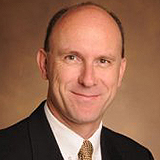Biomedical engineering nets more than any BME department in the country with 10
Sixteen engineering graduate students have been awarded a highly competitive government-funded National Science Foundation Graduate Research Fellowship. Three engineering undergraduate students also received NSF fellowships.
NSF Fellows receive a three-year annual stipend of $34,000 along with a $12,000 allowance for tuition and fees for research in NSF-supported science, technology, engineering, and mathematics disciplines. For the 2022 cycle, the NSF awarded approximately 2,200 fellowships from an applicant pool of about 13,000.

“This was a banner year for the School of Engineering in terms of the number of new NSF Fellowships,” said Professor E. Duco Jansen, senior associate dean for Graduate Education and Faculty Affairs in Vanderbilt’s School of Engineering. “These fellowships are extremely competitive, so to get this many awarded is a tremendous recognition of our outstanding students and our faculty mentors. Our graduate students really are amongst the best and the brightest in the country and the efforts our faculty put in to mentor these students in their research, and with these fellowship applications, is clearly paying dividends.”
The university’s Biomedical Engineering Department had more NSF fellowship recipients than any other BME department in the country with 10, said Jansen.
The School of Engineering recipients are:
Biomedical engineering
- Hannah Brien, synthetic gene circuits to integrate control methods that govern cell fate specification/Professor Jonathan Brunger
- Natalie Curry, the role of circulating tumor aggregates in prostate cancer metastasis/Professor Mike King
- Lauren Drake, engineering a neuronal microdevice to model tau propagation in vitro/Professor Ethan Lippmann
- Emily Fabiano, vinculin mediates migration and bioenergetics in breast cancer/Professor Cynthia Reinhart-King
- Andrew Kjar, engineered models of neurodegeneration/Professor Ethan Lippmann
- Chelsea Mariano, the role of cancer cell migration in large extracellular vesicle heterogeneity/Professor Cynthia Reinhart-King
- Ismael Ortiz, effects of intratumor heterogeneity in cancer migration and metastasis/Professor Cynthia Reinhart-King
- Hayden Pagendarm, surface-engineered dendritic cell-derived extracellular vesicles for diabetes immunotherapy/Professor John T. Wilson
- Nicole Sarna, mechanobiology approach to enhancing activation and cytotoxicity of CAR T cell immunotherapy for solid tumors/Professor Michael King
- Marsalas Whitaker, affinity purification of extracellular vesicles using bio-functionalized magnetic particles for early proteomic detection of infectious diseases/Professor Todd Giorgio
Mechanical engineering
- Jesse d’Almeida, minimally invasive surgical robot for transurethral prostatectomy and anastomosis/Professor Robert Webster III
Chemical engineering
- Corinne Curry, engineered biomaterials to maximize collateral arteriole growth and perfusion/Professor Ethan Lippmann
- Payton Stone, scalable fabrication of endosomolytic nanocarriers for delivery of immunotherapeutic nucleic acids/Professor John Wilson
Civil engineering
- Madeline Allen, insights from a participatory agent-based model: impact of individual decision-making processes on community-level flood resilience/Professor Mark Abkowitz.
Interdisciplinary materials science
- Tao Hong, integrating metasurfaces and microfluidics for deep learning-based cell classification/Professors Deyu Li and Jason Valentine
Computer science
- Stefan Larson, new methods for the acquisition and generation of adversarial and challenging data for rapid development of machine learning models by non-experts/Professor Kevin Leach
The three undergraduate recipients are Lucy Britto, biomedical engineering; Alice Ding, biomedical engineering and mechanical engineering; and Adrian Florea, mechanical engineering.
The NSF GRFP is the country’s oldest graduate fellowship program directly supporting graduate students since 1952. GRFP is a critical program in NSF’s overall strategy to develop a globally engaged workforce necessary to ensure the nation’s leadership in advancing science and engineering research and innovation. A hallmark of GRFP is its contribution to increasing the diversity of the STEM workforce, including geographic distribution, as well as the participation of women, underrepresented minorities, persons with disabilities and veterans.
Contact: Lucas Johnson, 615-343-0137
lucas.l.johnson@vanderbilt.edu